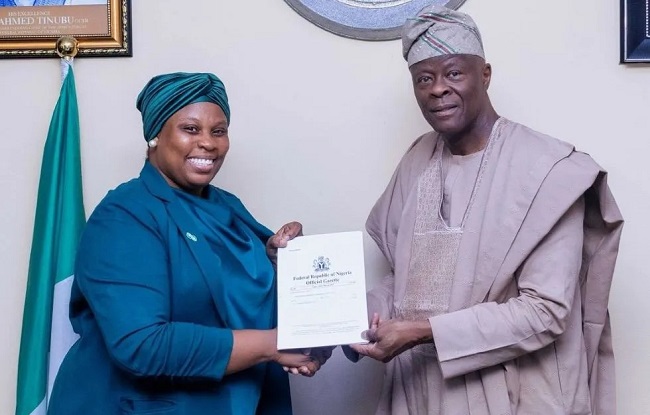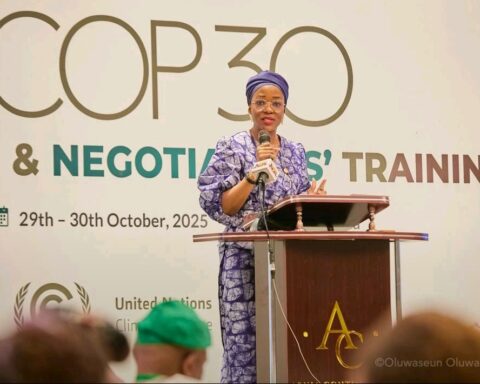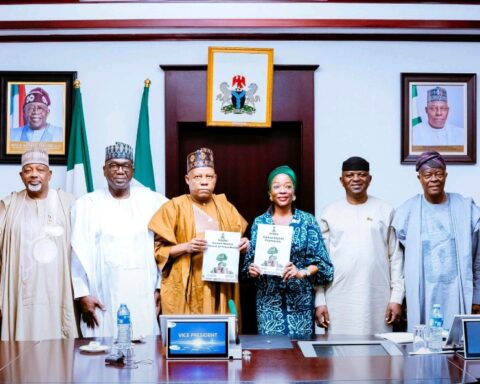The Nigerian government has announced a renewed commitment to activating the Climate Change Fund (CCF), a vital financial mechanism aimed at driving Nigeria’s green transition and enhancing its climate resilience framework.
The Minister of Finance and Coordinating Minister of the Economy, Wale Edun, disclosed this in Abuja during a strategic meeting with the Director-General of the Nigeria Climate Change Council (NCCC), Nkiruka Madueke.
At the centre of the discussions was the urgency of operationalising the underutilised Climate Change Fund to enable the effective implementation of Nigeria’s net-zero target and third-generation Nationally Determined Contributions (NDCs).
In her remarks the NCCC Director-General stressed that unlocking the fund is crucial for fulfilling the mandates of the Climate Change Act, particularly in financing regulatory enforcement, climate mitigation, and adaptation strategies.
Ms Madueke said expressions of interest had been received from key financial institutions, including the Nigeria Sovereign Investment Authority (NSIA), Bank of Industry (BOI), and Development Bank of Nigeria (DBN), to manage the fund and promote climate-related investments.
She also outlined other priority areas such as the development of a national climate finance taxonomy, a carbon market framework, and strategic investments in mangrove conservation a move she described as vital for sustaining Nigeria’s coastal ecosystems and climate adaptation goals.
Mr Edun pledged full support for the Council’s vision, describing climate finance as a central pillar of Nigeria’s long-term economic transformation.
“Integrating sustainability into economic development is no longer optional,” the minister said. “Nigeria must position itself as a hub for climate-aligned capital to meet its development goals while contributing meaningfully to global decarbonisation efforts.”
He urged the Council to submit a detailed framework and budget proposal to accelerate collaboration and attract foreign direct investment (FDI) in green infrastructure and climate-smart sectors.
Analysts say the activation of the fund could unlock billions of dollars in green financing from multilateral climate funds, international development partners, and private sector investors focusing on clean energy, carbon markets, and climate resilience across Africa.
If well implemented, Nigeria’s push to operationalise the CCF could catalyse a new era of Environmental, Social, and Governance (ESG)-linked investments, enhance the country’s global climate credibility, and position it as a leader in the continent’s low-carbon economic transition.
By Dare Akogun








